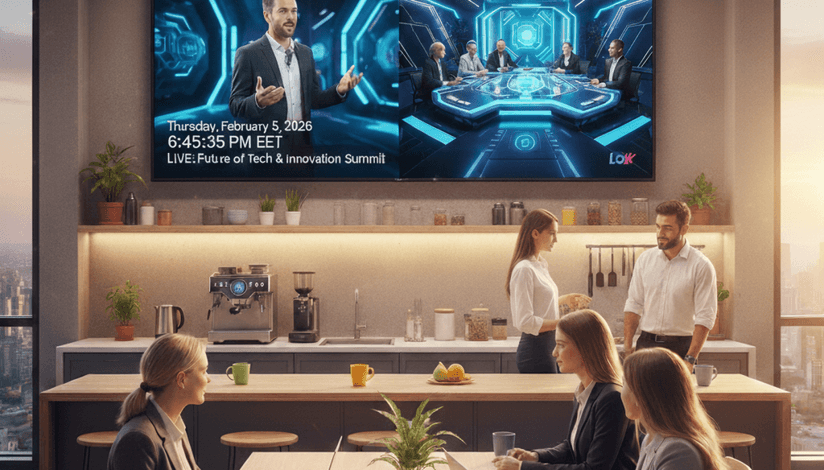Artificial Intelligence, or AI, has long permeated various aspects of the workforce worldwide, from healthcare, manufacturing, and finance. Many business owners have also leveraged the power of AI, not just for business operations, but also for managing large and complex datasets, such as legal contracts.
For service businesses, such as coworking space owners, where legal contracts are crucial to conducting business, harnessing the necessary tools to automate contract workflows and management, and shifting resources used for traditional contract management to more value-adding activities is essential.
In this article, we will discuss some expert insights on the implications of AI in legal contracts and contract management for coworking space owners.
What to consider when using AI for legal contracts
While AI contracts offer numerous benefits for coworking space owners, the integration of AI solutions, in any form, should be approached with extra care and attention. Here are some crucial points business owners should consider when jumping into coworking space trends like using generative AI in business for legal contracts and the use of contract management software:
1. Over-reliance on AI
Human intelligence, combined with the power of AI, should yield better and more efficient results and decisions than working alone. But what happens when humans accept AI results as they are without verifying them? This scenario is known as overreliance on AI, and it is a dangerous game humans play, particularly in critical industries such as medicine and law.
Peter Čuček, Owner at Tuuli, says, “AI systems should empower human activities and decisions, rather than replace them. Overreliance occurs when individuals lack the knowledge to determine the appropriate level of trust to place in AI systems, understand how they work, and recognize how they generate data.”
Coworking space owners who use AI to draft legal agreements should adopt a balanced approach to overseeing the drafting and management of legal contracts. This approach should include readily having a trusted lawyer review drafted contracts, acknowledging AI’s limitations, scrutinizing all details generated by AI systems, and conducting regular audit checks of AI outputs.
When it comes to legal contracts, business owners should rely on AI only for repetitive tasks such as data extraction and contract drafting. By pairing AI with data integration tools, organizations can streamline the flow of legal data across systems, ensuring consistency and accuracy. However, humans should continue to manage all other legal aspects of contracts, such as negotiation, interpretation, and risk assessment, where critical thinking and expertise are essential.
2. Data privacy concerns
As more industries rely on technology to create and manage confidential contract data, it is not surprising that there are also data privacy concerns business owners should be aware of when using this AI software:
- Unauthorized access or data breaches: Weak protection systems of contract management software could expose your confidential data to hacks or leaks.
- Use of data in model training: AI providers may, without your knowledge, use your contract data to train their language models.
- Lack of transparency: Clients may be averse to using AI contract management software, as it exposes a significant amount of their data to the Internet, and they are unsure how their data will be used and processed by the system.
Chris Aubeeluck, Head of Sales and Marketing at Osbornes Law, says, “Coworking spaces should be vigilant about federal and local laws regarding data privacy and security. AI-powered contract management software helps assess whether existing legal contracts or coworking space agreements comply with relevant privacy laws, such as the General Data Protection Regulation (GDPR) in the UK or the California Consumer Privacy Act (CCPA).”
3. Integration challenges
Jeffrey Zhou, CEO and Founder of Fig Loans, says, “Drafting legal contracts using AI-powered contract management systems can be challenging for internal personnel and clients. As AI systems are not yet widely recognized in the legal sphere, customers may hesitate to enter into contracts with coworking spaces that utilize AI systems.”
Similarly, coworking space employees may also face challenges in adopting new technologies like NSFW AI chatbot and automating strategies in coworking spaces due to a lack of technical knowledge, trust, or unfamiliarity with the technology. In addition, inadequate internal controls and safeguards may result in data breaches and information leaks when integrating AI-powered contract management software.
To address these concerns, coworking space owners need to provide adequate training in using AI contract management software and emphasize that these tools are adopted not to replace, but to augment processes for business efficiency.
4. Ethical implications
While AI can undoubtedly increase efficiency and cost savings in contract drafting, review, and management, the stigma against AI cannot be eradicated entirely, especially regarding tasks with important implications, like legal contracts.
A paper published in SSRN touched on the ethical considerations business owners must consider when using AI in legal contracts, including:
- Algorithmic bias
- Transparency and explainability
- Privacy and data security
- Human oversight
Jesse Hanson, Content Manager at World of Card Games, says, “In particular, AI in legal contracts raises concerns on algorithmic bias and fairness, and how the data set that an AI system is ‘trained’ in does not perpetuate bias, unfair terms, or omissions. For example, AI systems that learn from historical legal data that reflect inequalities and unfair practices—typically a bias towards the employer or business owner—would skew the same unfair practices when generating AI-powered legal contracts.”
AI-powered legal contracts can be discriminatory, especially with the use of predictive analytics in AI systems, especially when data sources are discriminatory. To mitigate this concern in coworking spaces, owners must implement human intervention in reviewing AI-generated legal contracts, especially consultation with legal professionals.
5. AI limitations
As AI relies mainly on historical data and predictive analytics, business owners must remember that in a legal context, AI will continue to face the following challenges:
- Lack of true legal understanding
- Inability to understand and interpret complex scenarios
- Jurisdictional limitations
- Template reliance
- Limited explainability
In a broader sense, AI’s legal limitations boil down to its inability to have a complete contextual understanding and ethical judgment of the information fed to it. Even with advancements in areas like Generative UI, which improve how users interact with AI systems, human judgment remains essential in legal contract review and decision-making. For those unfamiliar, understanding what is an ai model can shed light on why these systems behave this way—AI models are built to detect patterns in data, not to comprehend legal nuance or intent.
For example, AI systems do not truly understand or interpret the context or the situation of a coworking space contract, but instead gather and produce data based on a pattern, i.e., samples of other coworking space agreements or contracts from other coworking space owners. In this context, terms and conditions that may work for other coworking space owners may not necessarily be true and applicable to another.
In addition, just as businesses create invoice email templates to streamline business transactions, AI-powered tools can help coworking space owners draft coworking space agreement templates by entering a custom prompt. This, however, limits the flexibility of coworking space contracts that may need to adapt non-standard terms or agreements.
6. Regulatory issues
When considering using AI to draft, review, and manage legal contracts, coworking space owners must also consider several regulatory and legal issues that may arise and take necessary steps to avoid the misuse and abuse of data and processes through these AI systems.
For example, this piece from the University of Richmond School of Law highlights a particular section in which a contract management software fought its rights in some states to sell its services, emphasizing its disclaimer on what it does or does not do, some of which are as follows:
- That it is not a law firm and cannot provide any legal advice;
- It can only provide self-help services at its customers' direction.
- It is not intended to create any attorney-client relationship, and only offers legal document services.
Some states like Pennsylvania, despite the disclaimers, still consider these services illegal and an example of an Unauthorized Practice of Law, and that they are prohibited “...unless such services are provided by a person who is duly licensed to practice law in Pennsylvania, retained directly for the subject of the legal services.”
Samuel Charmetant, Founder of ArtMajeur by YourArt, says, “Art ownership and services also require many legal considerations, such as buyout agreements, grant agreements, exhibition agreements, or consignment and commission agreements. While AI contract management software is beneficial in helping art owners and sellers draft and manage legal contracts, it is important to ensure that these do not violate any regulatory issues in their states that may affect copyright and intellectual property.”
Examples of the best AI contract management software
As business owners embrace the evolution of coworking spaces, AI contract management software plays a key role in streamlining the efficiency of contract creation, review, and management, especially for coworking space owners who enter into regular contract agreements as part of their business services. Some examples of the best AI contract management software now on the market include:
- ContractSafe: A contract management software that streamlines the contract lifecycle, from creation to execution, with AI-powered features in its basic pricing model.
- Summarize. Focuses on a user-centric approach to contract review, with AI features that can be integrated into Microsoft Word.
- LegalFly: Can create custom AI agents to tailor contract creation and management to the business’s requirements. Businesses looking for tailored solutions may also consult an experienced ai agent development company or hire AI developers to build highly specific legal workflow automation.
- Spellbook: Has the ability to work through multi-document legal matters, completing review of business contracts and information through several documents at a time.
- Evisort: Uses strong analysis and generative AI strategies, supporting automated contract negotiations.
Conclusion
As AI continues to take over the world, one industry at a time, it is crucial for business owners to strike the right balance between utilizing AI to enhance their systems and human resources, making better decisions, and achieving more efficient outcomes.
For coworking space owners, AI-powered legal contracts and contract management systems should supplement existing systems, relieve employees of repetitive tasks such as contract drafting, and provide more efficient systems for managing a large number of contracts. However, to prevent potential legal issues in coworking space agreements, owners should still properly scrutinize all AI-generated legal contracts and avoid overreliance on AI systems.






